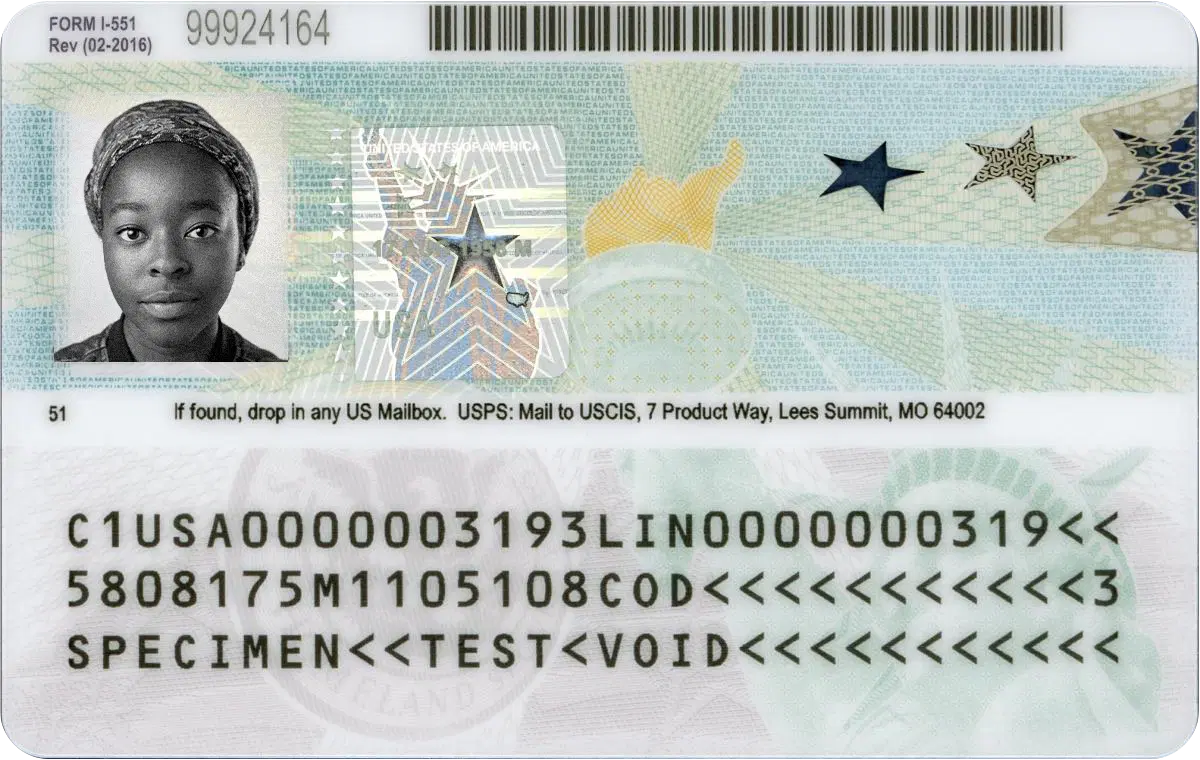Travel documents are like passports that allow people to travel internationally. They’re super important for immigrants because they prove their identity and legal status in a new country. Imagine you move to a new place, and you need a special ID to show you’re allowed to be there.
These documents help immigrants travel back to their home countries and return safely to their new ones. Without them, it’s hard to go anywhere outside your new home, which can be tough if you have family or important events in other countries. So, for immigrants, travel documents are like keys to open doors to the world while making sure they can come back home.
Table of Contents
Understanding USCIS
USCIS plays a crucial role in the immigration system by processing applications for various immigration benefits and services, such as work permits and refugee status. They also handle petitions for family members to join loved ones in the United States. Additionally, USCIS conducts interviews, background checks, and reviews of documentation to verify eligibility for immigration benefits. This thorough process ensures that individuals seeking to enter or remain in the country do so lawfully and contribute positively to society.
Furthermore, USCIS provides information and resources to help immigrants understand their rights and responsibilities. They offer guidance on navigating the complex immigration system and assist individuals and families facing challenges or uncertainties during the immigration process. Through its outreach efforts, USCIS aims to promote integration and empower immigrants to build successful lives in the United States.
Eligibility Criteria
Eligibility criteria refer to the specific requirements that individuals must meet in order to qualify for certain immigration benefits or services provided by USCIS. These criteria can vary depending on the type of benefit or service being sought and may include factors such as age, marital status, employment status, and immigration status.
For example, eligibility criteria for obtaining a green card (lawful permanent residence) may include having a qualifying family relationship with a U.S. citizen or lawful permanent resident, being sponsored by an employer, or being selected through the diversity visa lottery program.
Similarly, eligibility criteria for obtaining a work permit (employment authorization document) may include having a pending application for certain immigration benefits, being granted asylum or refugee status, or being a spouse or dependent of certain visa holders.
Application Process
The application process for immigration benefits or services through USCIS typically involves several steps that applicants need to follow.
- Determine Eligibility: Before applying, individuals should review the eligibility criteria for the specific immigration benefit or service they are seeking. This ensures that they meet the requirements.
- Prepare Required Documentation: Applicants must gather and prepare the necessary supporting documents as outlined in the USCIS instructions for the particular form or benefit they are applying for. This may include forms, identification documents, evidence of eligibility, and supporting letters or affidavits.
- Complete Application Form: Applicants must fill out the appropriate USCIS application form accurately and completely. Each form has specific instructions regarding how to fill it out, including where to sign and how to submit it.
- Pay Fees: Most USCIS applications require a filing fee, which must be paid at the time of submission. Fee waivers may be available for certain applicants who demonstrate financial hardship.
- Submit Application: Once the application form is completed and all required documentation is gathered, applicants must submit their application package to USCIS according to the instructions provided. This may involve mailing the package to a designated USCIS address or submitting it electronically through the USCIS website.
- Attend Biometrics Appointment (if required): Some applications may require applicants to attend a biometrics appointment to provide fingerprints, photographs, and/or a signature for identity verification purposes.
Processing Times and Fees
Processing times and fees are important aspects of the immigration application process through USCIS.
Processing Times
- USCIS provides estimated processing times for different types of applications on its website. These times can vary depending on factors such as the type of application, the USCIS workload, and the applicant’s circumstances.
- Applicants can check the current processing times for their specific application by visiting the USCIS website and using the “Check Case Processing Times” tool.
- It’s important to note that processing times are subject to change, and USCIS may experience delays due to various factors, including increased application volume or changes in immigration policies.
Fees
- Most USCIS applications require payment of a filing fee. The amount of the fee depends on the type of application being submitted.
- USCIS provides a fee schedule on its website, which lists the current filing fees for each type of application. Applicants should review the fee schedule carefully to determine the appropriate fee for their application.
- Fee waivers may be available for certain applicants who demonstrate financial hardship. USCIS provides instructions on how to request a fee waiver in the application instructions for eligible forms.
- Payment methods accepted by USCIS may include checks, money orders, credit cards, or electronic funds transfers. It’s important to follow the specific payment instructions provided by USCIS to ensure that the application fee is processed correctly.
Importance of the Travel Document Number
The travel document number holds significant importance for individuals navigating immigration processes.
Identification and Verification
The travel document number serves as a unique identifier for the document holder, allowing immigration authorities to verify their identity and legal status. This number is crucial for confirming the authenticity of the travel document and ensuring compliance with immigration laws and regulations.
Travel Authorization
The travel document number indicates that the holder has been granted permission to travel internationally. Whether it’s an advance parole document, refugee travel document, or re-entry permit, this number validates the individual’s eligibility to travel and re-enter the country after a temporary absence.
Immigration Records
The travel document number is linked to the holder’s immigration records, containing important information about their immigration status, travel history, and any conditions or restrictions associated with their stay in the country. Immigration authorities rely on this number to access and update the individual’s records as needed.
Access to Services
In some cases, individuals may need to provide their travel document number when accessing immigration-related services or benefits, such as applying for a visa, obtaining employment authorization, or renewing their status. Having a valid and accurate travel document number is essential for completing these processes smoothly and efficiently.
Security and Control
By assigning a unique travel document number to each holder, immigration authorities can maintain security and control over the movement of individuals across borders. This helps prevent fraud, unauthorized travel, and identity theft, ultimately safeguarding national security interests.
Benefits of Having a Travel Document
Having a travel document offers several key benefits for individuals navigating immigration processes.
- International Travel: Perhaps the most obvious benefit is the ability to travel internationally. With a valid travel document, individuals can leave and re-enter the country legally, facilitating personal and professional travel, visiting family abroad, attending important events, or exploring new destinations.
- Legal Status Confirmation: A travel document serves as tangible proof of an individual’s legal status in the country. This documentation is essential for confirming identity and immigration status when interacting with immigration authorities, law enforcement agencies, or other government entities.
- Temporary Absences: For individuals with pending immigration applications or certain immigration statuses (such as DACA recipients or asylum seekers), a travel document like an Advance Parole Document allows for temporary travel outside the country without jeopardizing their immigration status or pending applications.
- Access to Consular Services: Holding a valid travel document ensures access to consular services and protection from one’s home country while traveling abroad. Consular services may include assistance in emergencies, passport renewal, legal aid, and other forms of support for citizens abroad.
- Facilitation of Re-entry: A travel document, particularly a Refugee Travel Document or Re-entry Permit, streamlines the process of re-entering the country after international travel. It indicates to immigration authorities that the traveler has legal permission to return, reducing the risk of complications or delays at ports of entry.
- Peace of Mind: Knowing that one possesses a valid travel document provides peace of mind, alleviating concerns about legal status, travel permissions, and potential complications during international travel. This sense of security allows individuals to focus on their travel plans and activities without undue stress or uncertainty.
Conclusion
The travel document number from USCIS is super important for immigrants. It’s like a special code that proves who you are and that you’re allowed to travel. Understanding this number is like having a key to unlock doors to new opportunities in the United States.
Having a valid travel document number means you can travel internationally, confirm your legal status, and access important services easily. It’s not just a number. It’s your ticket to feeling secure and confident as you navigate immigration processes and build a new life in your adopted country. So, knowing and valuing your travel document number is essential for a smooth journey towards fulfilling your dreams in the United States.



